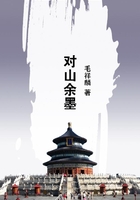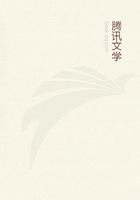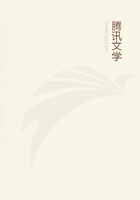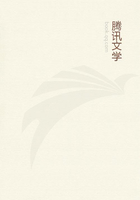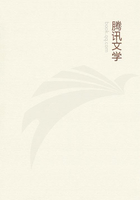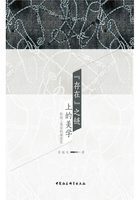But this was their fault as well as his, since they were as much too lax, as he was too severe, in the interpretation of the law.31 He next alienated and outraged the people whom he was appointed to govern. And, lastly, he disgusted his own friends, and too often turned them into enemies; so that, in his final struggle for power and for existence, he was obliged to rely on the arm of the stranger. Yet in the catalogue of his qualities we must not pass in silence over his virtues. There are two to the credit of which he is undeniably entitled,--a loyalty, which shone the brighter amidst the general defection around him, and a constancy under misfortune, which might challenge the respect even of his enemies. But with the most liberal allowance for his merits, it can scarcely be doubted that a person more incompetent to the task assigned him could not have been found in Castile.32The victory of Anaquito was received with general joy in the neighboring capital; all the cities of Peru looked on it as sealing the downfall of the detested ordinances, and the name of Gonzalo Pizarro was sounded from one end of the country to the other as that of its deliverer. That chief continued to prolong his stay in Quito during the wet season, dividing his time between the licentious pleasures of the reckless adventurer and the cares of business that now pressed on him as ruler of the state. His administration was stained with fewer acts of violence than might have been expected from the circumstances of his situation. So long as Carbajal, the counsellor in whom he unfortunately placed greatest reliance, was absent, Gonzalo sanctioned no execution, it was observed, but according to the forms of law.33 He rewarded his followers by new grants of land, and detached several on expeditions, to no greater distance, however, than would leave it in his power readily to recall them. He made various provisions for the welfare of the natives, and some, in particular, for instructing them in the Christian faith. He paid attention to the faithful collection of the royal dues, urging on the colonists that they should deport themselves so as to conciliate the goodwill of the Crown, and induce a revocation of the ordinances. His administration, in short, was so conducted, that even the austere Gasca, his successor, allowed "it was a good government,--for a tyrant." 34At length, in July, 1546, the new governor bade adieu to Quito, and, leaving there a sufficient garrison under his officer Puelles, began his journey to the south. It was a triumphal progress, and everywhere he was received on the road with enthusiasm by the people. At Truxillo, the citizens came out in a body to welcome him, and the clergy chanted anthems in his honor, extolling him as the "victorious prince," and imploring the Almighty "to lengthen his days, and give him honor."35At Lima, it was proposed to clear away some of the buildings, and open a new street for his entrance, which might ever after bear the name of the victor. But the politic chieftain declined this flattering tribute, and modestly preferred to enter the city by the usual way. A procession was formed of the citizens, the soldiers, and the clergy, and Pizarro made his entry into the capital with two of his principal captains on foot, holding the reins of his charger, while the archbishop of Lima, and the bishops of Cuzco, Quito, and Bogota, the last of whom had lately come to the city to be consecrated, rode by his side. The streets were strewn with boughs, the walls of the houses hung with showy tapestries, and triumphal arches were thrown over the way in honor of the victor. Every balcony, veranda, and house-top was crowded with spectators, who sent up huzzas, loud and long, saluting the victorious soldier with the titles of "Liberator, and Protector of the people." The bells rang out their joyous peal, as on his former entrance into the capital; and amidst strains of enlivening music, and the blithe sounds of jubilee, Gonzalo held on his way to the palace of his brother. Peru was once more placed under the dynasty of the Pizarros.36Deputies came from different parts of the country, tending the congratulations of their respective cities; and every one eagerly urged his own claims to consideration for the services he had rendered in the revolution. Pizarro, at the same time, received the welcome intelligence of the success of his arms in the south. Diego Centeno, as before stated, had there raised the standard of rebellion, or rather, of loyalty to his sovereign. He had made himself master of La Plata, and the spirit of insurrection had spread over the broad province of Charcas. Carbajal, who had been sent against him from Quito, after repairing to Lima, had passed at once to Cuzco, and there, strengthening his forces, had descended by rapid marches on the refractory district. Centeno did not trust himself in the field against this formidable champion. He retreated with his troops into the fastnesses of the sierra. Carbajal pursued, following on his track with the pertinacity of a bloodhound; over mountain and moor, through forests and dangerous ravines, allowing him no respite, by day or by night. Eating, drinking, sleeping in his saddle, the veteran, eighty years of age, saw his own followers tire one after another, while he urged on the chase, like the wild huntsman of Burger, as if endowed with an unearthly frame, incapable of fatigue! During this terrible pursuit, which continued for more than two hundred leagues over a savage country, Centeno found himself abandoned by most of his followers. Such of them as fell into Carbajal's hands were sent to speedy execution; for that inexorable chief had no mercy on those who had been false to their party.37 At length, Centeno, with a handful of men, arrived on the borders of the Pacific, and there, separating from one another, they provided, each in the best way he could, for their own safety. Their leader found an asylum in a cave in the mountains, where he was secretly fed by an Indian curaca, till the time again for him to unfurl the standard of revolt.38Carbajal, after some further decisive movements, which fully established the ascendency of Pizarro over the south, returned in triumph to La Plata.
同类推荐
热门推荐
追妻无门:女boss不好惹
青涩蜕变,如今她是能独当一面的女boss,爱了冷泽聿七年,也同样花了七年时间去忘记他。以为是陌路,他突然向他表白,扬言要娶她,她只当他是脑子抽风,他的殷勤她也全都无视。他帮她查她父母的死因,赶走身边情敌,解释当初拒绝她的告别,和故意对她冷漠都是无奈之举。突然爆出她父母的死居然和冷家有丝毫联系,还莫名跳出个公爵未婚夫,扬言要与她履行婚约。峰回路转,破镜还能重圆吗? PS:我又开新文了,每逢假期必书荒,新文《有你的世界遇到爱》,喜欢我的文的朋友可以来看看,这是重生类现言,对这个题材感兴趣的一定要收藏起来。追妻无门:女boss不好惹
青涩蜕变,如今她是能独当一面的女boss,爱了冷泽聿七年,也同样花了七年时间去忘记他。以为是陌路,他突然向他表白,扬言要娶她,她只当他是脑子抽风,他的殷勤她也全都无视。他帮她查她父母的死因,赶走身边情敌,解释当初拒绝她的告别,和故意对她冷漠都是无奈之举。突然爆出她父母的死居然和冷家有丝毫联系,还莫名跳出个公爵未婚夫,扬言要与她履行婚约。峰回路转,破镜还能重圆吗? PS:我又开新文了,每逢假期必书荒,新文《有你的世界遇到爱》,喜欢我的文的朋友可以来看看,这是重生类现言,对这个题材感兴趣的一定要收藏起来。“存在”之链上的美学:形而上美学的演进史
本书是以西方美学的历史进程为中心,研究形而上学的发展变化如何决定着存在论的变化,而存在论的变化又如何影响着美学的形态、方法与主要问题。本书的核心线索是描述“存在”范畴的历史变化如何改变着美学的基本问题与形态,把形而上学史与美学史进行比较研究,从形而上学发展的角度研究美学的发展进程,进而分析一个时代的形而上学如何影响着时代的审美追求,是对美学之存在沦基础的探究,也是对审美的形而上学性的探索。本书所给出的是一种彻底哲学化的美学,是一种“形而上美学”。

